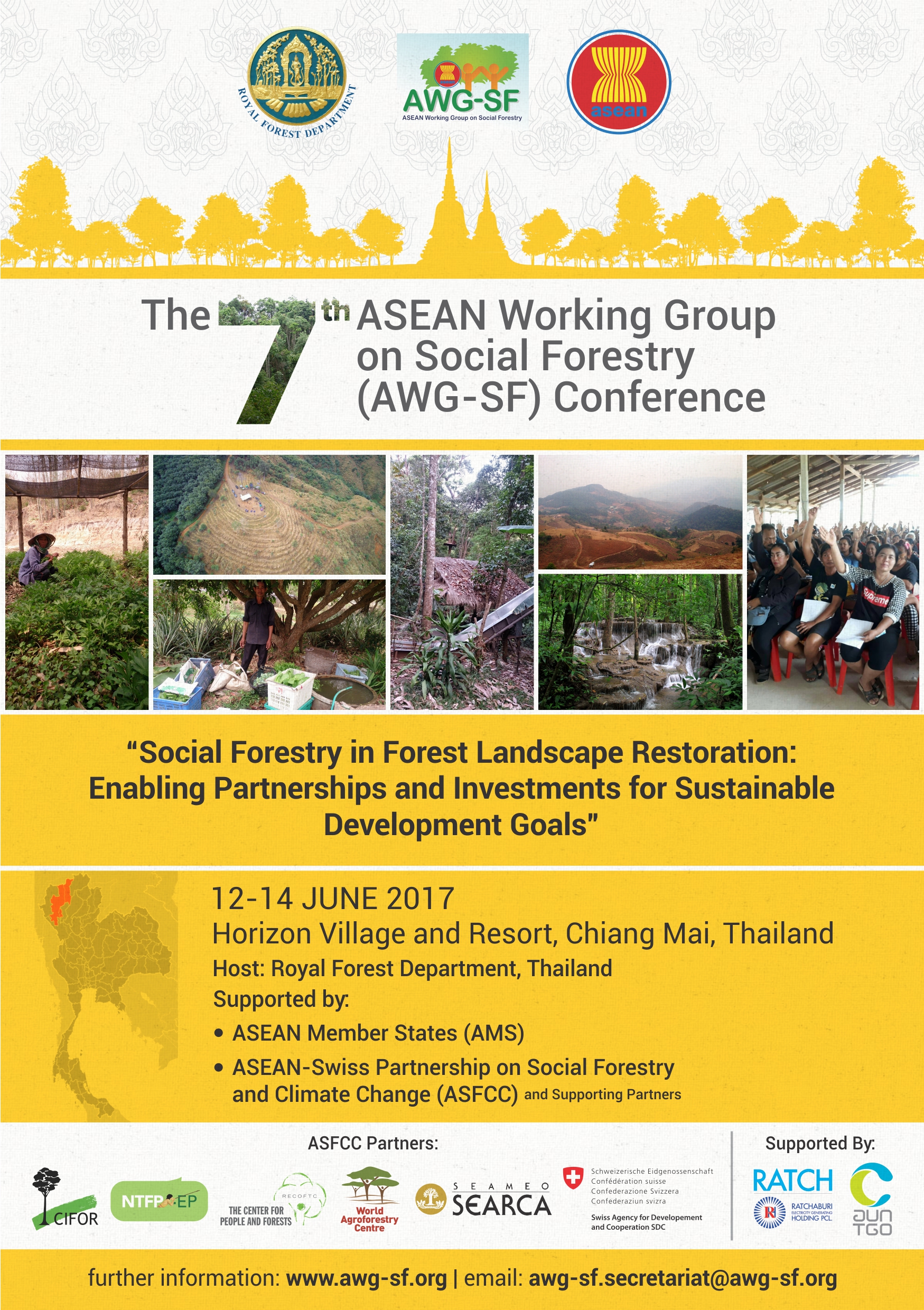
The endorsement of the ASEAN Social Forestry Network’s institutionalization into the ASEAN Working Group on Social Forestry has reinforced the network’s thrust to promote forest management involving communities living within and surrounding the forest for the sustainability of the forest and prosperity of the people.
As one its flagship activities, the yearly AWG-SF Conference has pioneered multi-stakeholder collaboration towards the mainstreaming of social forestry. Since 2010, the conference has been providing an annual platform to engage in fruitful knowledge exchange on pressing issues and relevant developments in the region. The cooperation among the government, civil society, private sector, academic/research institutions, and dialogue and development partners have brought about significant commitments and results to engage common issues and tap crucial opportunities towards sustainability.
This year, the Royal Forest Department of Thailand, ASEAN Working Group on Social Forestry (AWG-SF) & ASEAN Swiss Partnership on Social Forestry and Climate Change (ASFCC) and Civil Society Organizations (CSOs) will hold the 7th AWG-SF Conference in Chiang Mai, Thailand on 12-14 June 2017 to align and synthesize efforts toward achieving the Sustainable Development Goals.
The theme of this year’s conference is “Social Forestry in Forest landscape Restoration: Enabling Partnership and Investments for Sustainable Development Goals“.

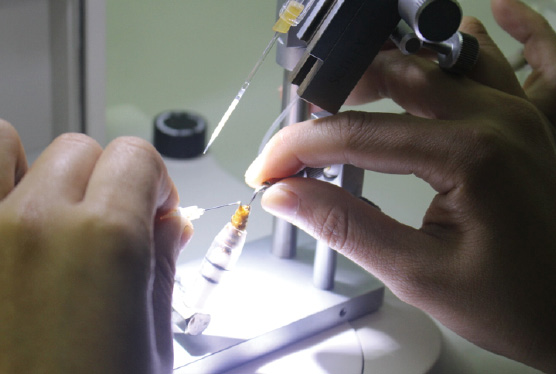
HA NOI, Vietnam – For bees, the queen plays a crucial role in the cultivation of the colony. Due to the increasing threats on forest bees and their habitats, their populations are on a rapid decline. In Vietnam, bee experts have found a way to curb the downtrend using an instrumental insemination technology of the queen bee. While this is a breakthrough for our happy forest bee friends, this technology can also be of use to protect the livelihoods of many forest-dependent communities not just in Vietnam but the rest of the world.
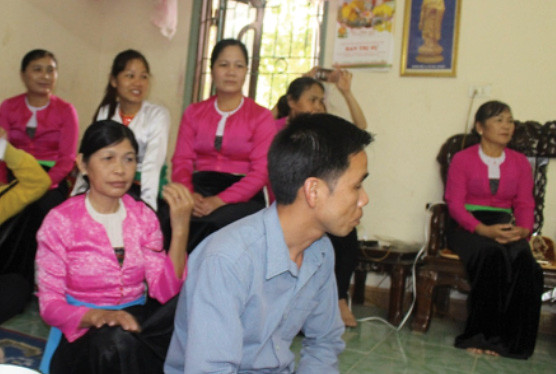
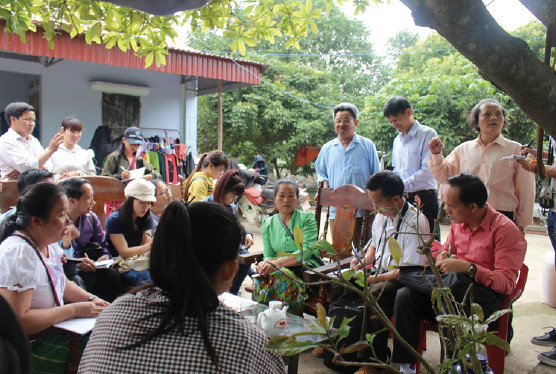
Exchanging and sharing experience of beekeeping from Muong women people.
The Center for Biodiversity and Development (CBD), together with the Southern Insititute of Ecology (SIE), Non-Timber Forest Products–Exchange Programme (NTFP-EP) Vietnam and the Research Center for Tropical Bees and Beekeeping (RCTBB) organized a learning visit on managing forest honey resources for local ethnic women in Ha Noi, Vietnam in 3-7 April 2017.
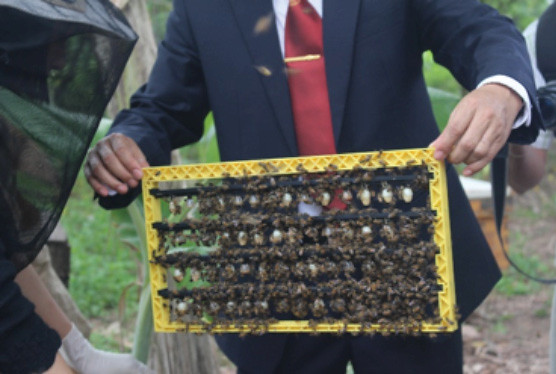
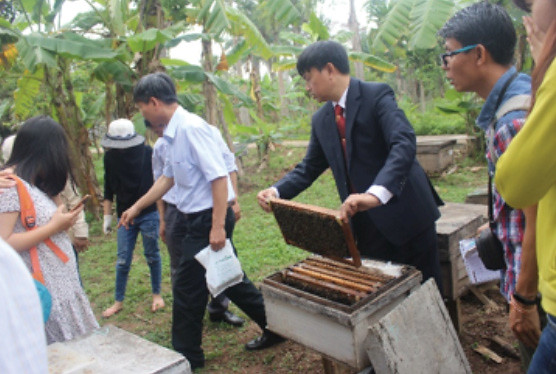
Dr. Pham Hong Thai introduced the beekeeping model and research on queen – inseminated production.
The trip was a holistic immersion for the participants as they had the chance to visit the local bee farms in Bac Giang and Hoa Binh provinces and be introduced to the technical aspects of beekeeping from Dr. Pham Hong Thai and Dr. Nguyen Dang Toan of the RCTBB of Vietnam National University of Agriculture. Co-learning from their experiences, the participants were committed to put their newly gained knowledge into practice to continue empowering the queens: both of the bees and local communities’ strong women!
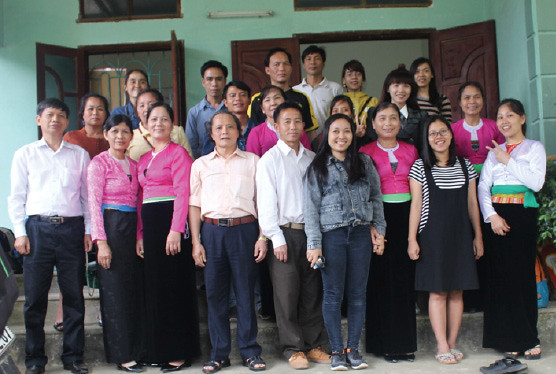
Delegation to visit a household of beekeepers of Muong people in Hoa Binh province

Since its establishment in 2012, the Civil Society Organizations (CSO) Forum on Social Forestry in ASEAN has served as a platform for local communities, indigenous people’s organizations, and civil society organizations to consolidate and elevate key messages to the members of the ASEAN states through the ASEAN Working Group on Social Forestry (AWG-SF).
Today, over 50 participants representing representing 40 organizations from 8 countries in Southeast Asia are actively engaged in the forum.









